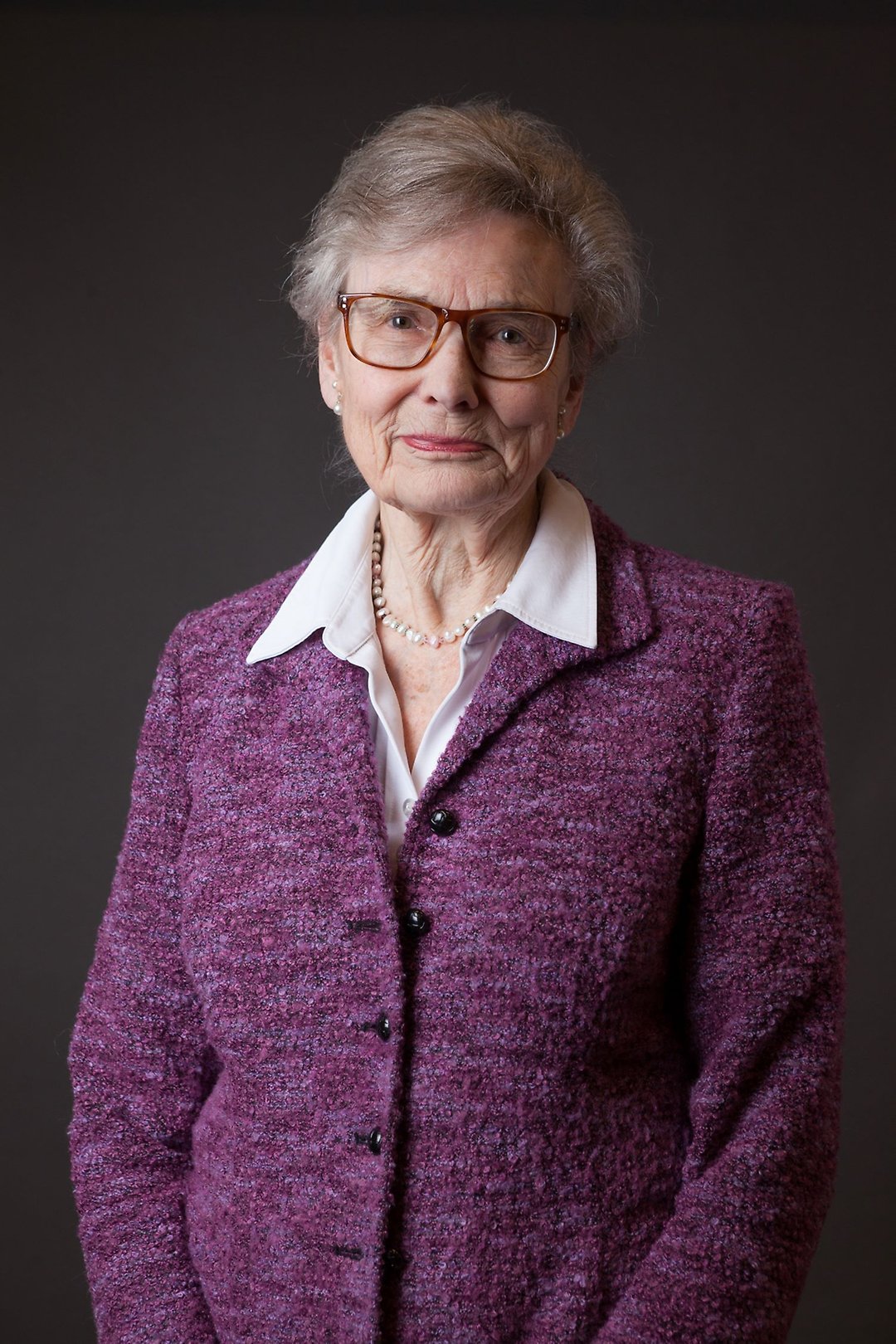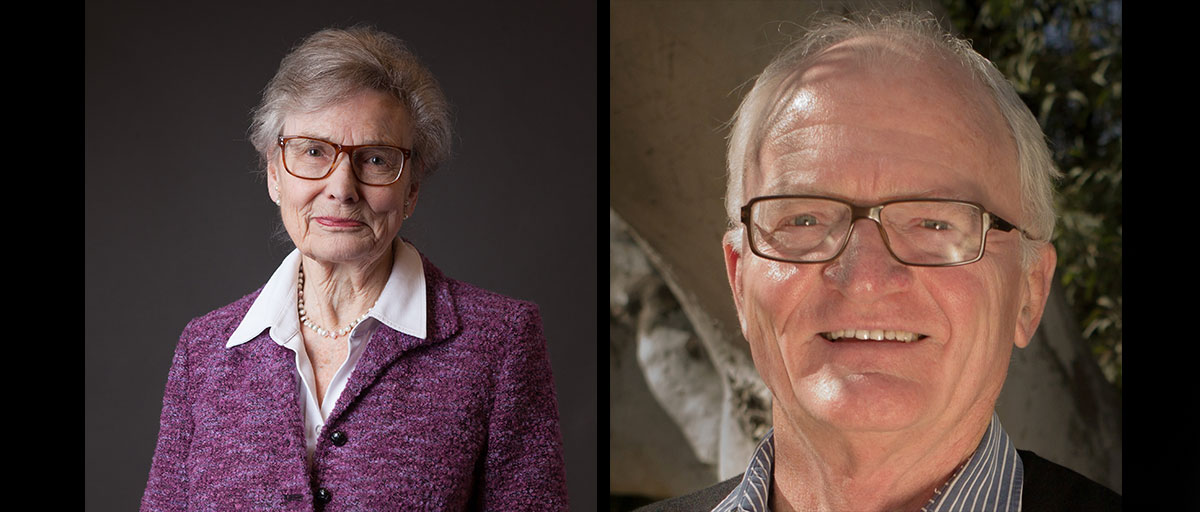Malin Falkenmark
Malin Falkenmark, water pioneer and academic mother of water research has passed
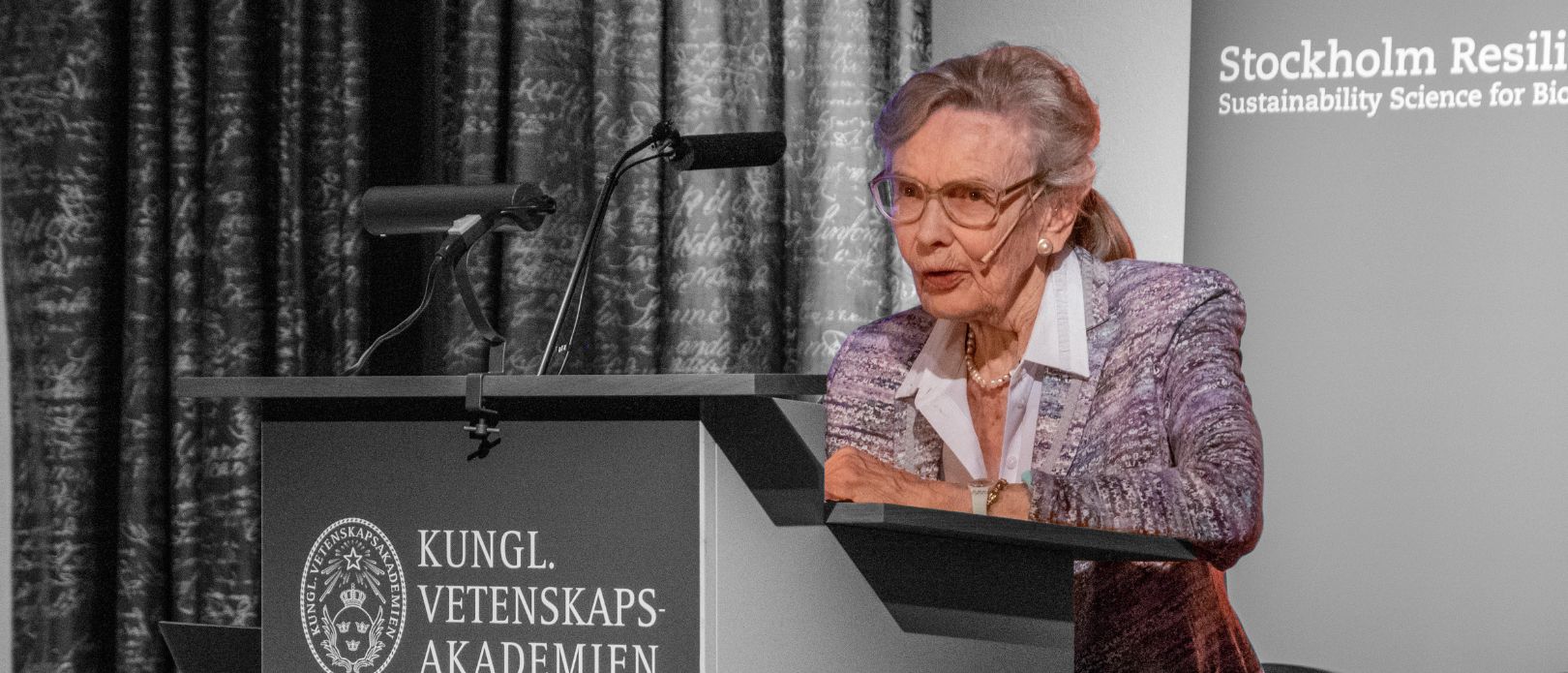
Malin Falkenmark has been part of the Stockholm Resilience Centre since its beginning in 2007 and inspired a lot of the research at the Centre.
It is with deep sadness we have learned that professor Malin Falkenmark has passed away at 98 years of age. She has been a pathbreaking pioneer and hero, always curious, always eager to learn more and always dedicated to sharing her knowledge with the next generation
- Malin Falkenmark was a pioneering hydrologist working on the significance of water in its many and diverse on the living planet
- She was a dedicated mentor and teacher and has fostered several generations of groundbreaking scientists
- Long past her official retirement, Malin Falkenmark never stopped in her unwavering engagement and curiosity for science that supports people and the planet
At Stockholm Resilience Centre, Malin Falkenmark can be seen as the academic mother of Johan Rockström and Line Gordon, and the grandmother of a younger Centre generation, including Lan Wang-Erlandsson and Patrick Keys.
Malin Falkenmark’s work pushed a shift in focus from water as a ‘good’ to water as the ‘bloodstream of the biosphere’. She had a spectacular capacity to advance systems thinking — bridging hydrology, ecology, agricultural sciences with social and economic systems. Her pioneering work has greatly influenced global understanding and policies related to water scarcity, land use, and water management.
“Malin was extremely dedicated to science. She was always worried that things took too long considering the massive challenges humanity has to solve. Even after she turned 90, she could come into my office and say that we needed to move faster,” says Centre director Line Gordon.
Pioneer on water research
Professor Falkenmark is renowned for introducing multiple concepts. One of the best known is the Falkenmark ‘water stress index’, assessing the number of people that share an annually renewable source of freshwater. The Falkenmark index is one of the earliest, and most used indicators to measure and describe water availability for human use. The level of water scarcity in a certain country was determined based on thresholds: If the amount of renewable water in a country is below 1,700 m3 per person per year, that country is said to be experiencing water stress; below 1,000 m3 it is said to be experiencing water scarcity; and below 500 m3, absolute water scarcity.
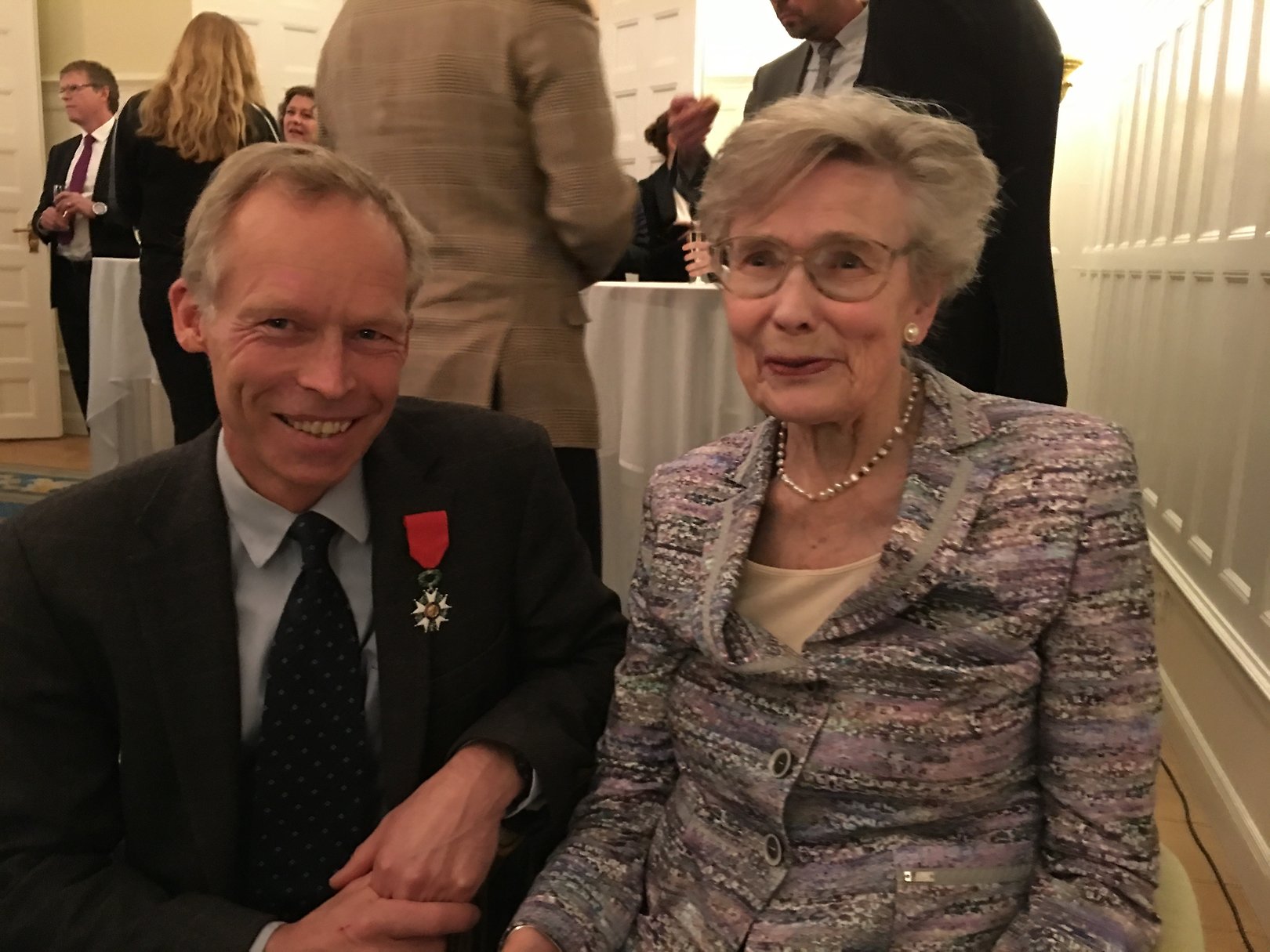
Johan Rockström and Malin Falkenmark, pioneers behind the concept of "green water".
She also introduced the concepts of ‘green and blue water’, together with Johan Rockström, highlighting the invisible role that water in the soil has in crop production. She defined green water as "the rainwater that infiltrates into the root zone and is used for biomass production", in contrast to blue water which is the water that either runs off from the soil surface or percolates beyond the root zone to form groundwater. The work on green water highlighted the challenges in many sub-Saharan African countries facing combined food and water shortages as well as extreme poverty.
“Malin’s amazing work on the significance of water in its many and diverse roles on our living planet is such a unique contribution to the world. A truly special and wonderful human being that over decades has not only formed the scientific frontier worldwide but also inspired so many,” says Carl Folke, chair of the board of the Centre.
A key problem with climate change is that people don’t understand what it means.
Malin Falkenmark
Overall, Professor Falkenmarks’s research emphasized the intersection of water, food, and environmental security, emphasizing the importance of integrated water management. Falkenmark's studies on the water requirements for food production and ecohydrology have been pivotal in shaping strategies for managing water resources in agriculture and preserving ecosystems.
Professor Falkenmark constantly advocated for a holistic approach to water management, considering socio-economic factors and environmental impacts. Her work has been instrumental in raising awareness about the impending global water crisis and the urgency of implementing sustainable water policies and practices. As she explained earlier this year:
“A key problem with climate change is that people don’t understand what it means.”
Inspiring mentor
Her legacy extends to fostering interdisciplinary research, promoting integrated water management and ecosystem management in ways that also strive to ensure development opportunities for some of the most vulnerable regions of the world. She led the development of one of Sweden's first interdisciplinary academic units, the Department for Water and Environment Studies at Linköping University.; She joined Stockholm University and the Department of Systems Ecology in 1991, after she retired from her “day job”, and has been part of Stockholm Resilience Centre since its beginning in 2007. At the Centre, she has been a teacher and mentor for many and was very committed to her students:
“Malin often said that it was in interactions with her students she had some of her best insights,” says Line Gordon, who was one of her students:
“Malin supervised me on my master's thesis. Once I had submitted my first draft, Malin called me up and sat with me for over two hours to go through the text which was completely red with her comments and suggested changes. I was devastated. Just as I was about to leave, she looked me in the eyes and said ‘You must understand that I only spend this much time with you because I think that this is really good!’”
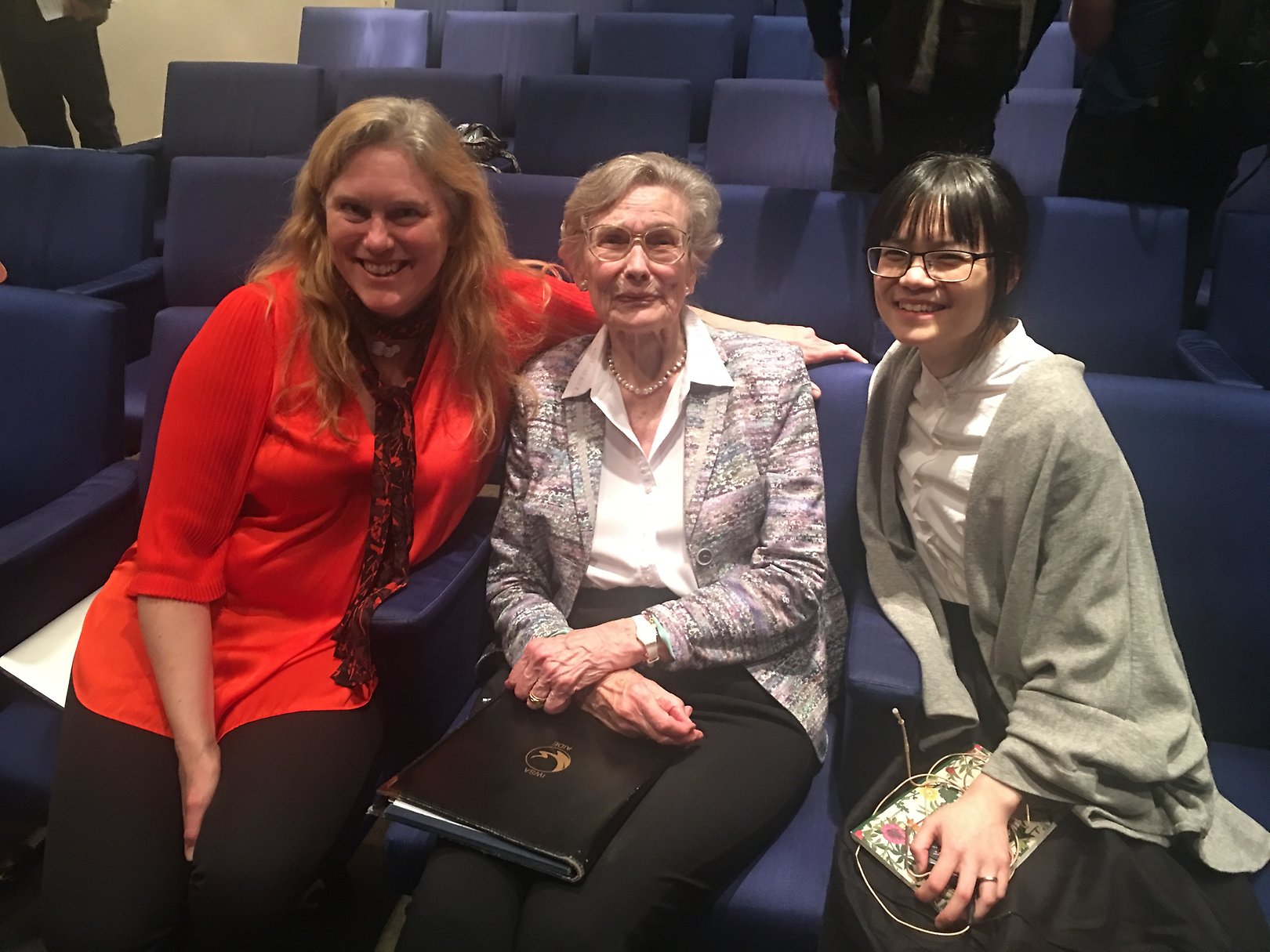
Malin Falkenmark (middle) with two generations of her students: Line Gordon (left) and Lan Wang-Erlandsson (right). "She rooted so much for the young and the coming generations, and inspired so many of us with her steadfast dedication to the scientific pursuit," says Lan Wang-Erlandsson about her mentor.
Malin Falkenmark also led the establishment of the annual Stockholm World Water Week (initially named Stockholm Water Symposium), and she was the Chair of the Scientific Program Committee at the Stockholm International Water Institute (SIWI) (1991–2003). She held numerous posts on international boards and committees, including as General Rapporteur of the United Nations Water Conference Mar del Plata (1977); member of the UN Committee on Energy and Natural Resources for Development and the UN Millennium Project Task Force for Environmental Sustainability; and Scientific Advisor to the Global Environment Facility and the Comprehensive Freshwater Assessment of the World.
That must always be the answer: to find out the way things operate.
Malin Falkenmark
Apart from being a pioneer in her work and research, Malin Falkenmark also broke new ground for women in the very male-dominated field of hydrology:
“At that time I was the first female hydrologist in the ice department. However, the men were not so appreciative. There was a man who was in charge of facility management, and he didn't want to give me a key. Perhaps he thought I was not trustworthy because I am a woman.
“But there was no other option. Whenever a problem occurred, the way to meet it was to stand tall, literally. Because I am so tall, that was very effective. The man responsible for the key was much shorter than me!” she recalled in an interview in 2018.
In 2018, she shared the Blue Planet Prize with ecologist Brian Walker. Long past her official retirement, Malin Falkenmark never stopped in her unwavering engagement and curiosity for science that supports people and the planet. Or as she put it in an interview earlier this year:
“That must always be the answer: to find out the way things operate.”
